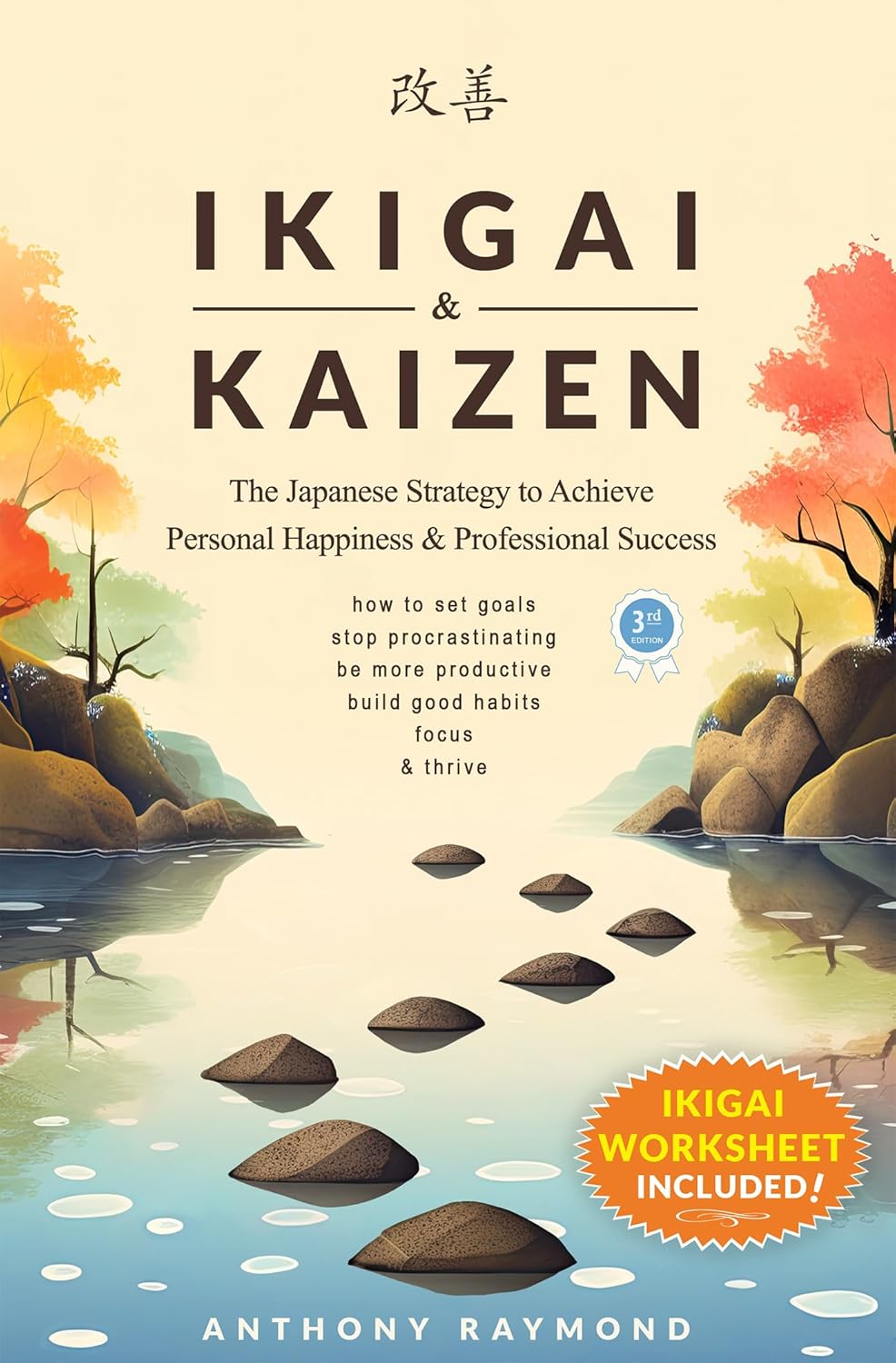
Ikigai and Kaizen
Some books feel like an invitation to sit down with a warm cup of tea and rethink how you’re spending your days. Ikigai and Kaizen by Anthony Raymond is one of those books, blending two Japanese philosophies—one about purpose, the other about continuous improvement—into a digestible, motivating, and (at times) delightfully blunt reflection on how to live better. It doesn’t yell at you to wake up at 5 AM, build an empire, or bench press your own fears. Instead, it nudges you toward a more sustainable path, one where meaningful progress doesn’t require burnout.
Let’s start with ikigai, a concept that gets thrown around in self-help circles like a magic key to happiness. At its core, it’s the idea that life is most fulfilling when you find the intersection between what you love, what you’re good at, what the world needs, and what you can be paid for. That sounds simple enough, but Raymond does a great job of cutting through the fluff that often surrounds this idea. He doesn’t just present ikigai as an aspirational concept; he actually shows how it functions in real life, beyond the neat little Venn diagrams you see on Pinterest. The book makes it clear that ikigai isn’t necessarily some grand, world-changing mission—it can be something as simple as crafting furniture, teaching kids, or even making the perfect cup of coffee. The key isn’t in the scale of your purpose but in its ability to get you out of bed with a sense of meaning.
And then there’s kaizen, which is basically the quieter, less flashy cousin of hustle culture. Instead of urging you to overhaul your life overnight, kaizen is all about making small, incremental improvements over time. Raymond highlights how this philosophy, originally developed in the world of Japanese business and manufacturing, can be just as effective in personal growth. The magic of kaizen is that it sidesteps the all-or-nothing mentality that so many self-improvement books unknowingly reinforce. You don’t need to run a marathon next week, launch a startup in six months, or achieve inner peace by next Tuesday. You just need to improve by a tiny fraction today—and then do the same tomorrow. The book argues (quite convincingly) that small changes, when sustained, add up to something far more powerful than sporadic bursts of motivation.
Where Raymond really shines is in his ability to weave these two concepts together without making them feel like another formulaic “life hack.” The interplay between ikigai and kaizen makes for a refreshing approach to personal development—one that doesn’t demand immediate, radical transformation but instead encourages alignment and steady refinement. If ikigai helps you figure out where you want to go, kaizen keeps you moving without the exhaustion of trying to sprint the entire way there.
The book is also refreshingly realistic. While some self-help books sell you the fantasy that anything is possible with the right mindset (as if positive thinking alone will suddenly make you a concert pianist), Raymond is more grounded. He acknowledges that finding ikigai isn’t always easy and that continuous improvement isn’t always linear. There are detours, setbacks, and moments where progress feels painfully slow. But that’s where kaizen becomes invaluable—it reminds you that even when things don’t go as planned, you can still take one small step forward.
Beyond its philosophical grounding, Ikigai and Kaizen is also just an enjoyable read. Raymond’s writing is straightforward without being dull, encouraging without being saccharine. He doesn’t just hand you motivational quotes and send you on your way—he gives you something practical to hold onto, something that doesn’t fall apart under the weight of real-life challenges.
So, what’s the big takeaway? If you’re looking for a book that tells you to quit your job, move to Bali, and find your bliss, this isn’t it. But if you’re interested in a book that respects the fact that you have responsibilities, challenges, and a complicated life—and still want to make meaningful, lasting change—this one’s worth your time. Ikigai and Kaizen isn’t about chasing an unattainable ideal; it’s about crafting a life that feels rich in purpose and growth, one small step at a time. And honestly, isn’t that a more sustainable way to get where we’re going?